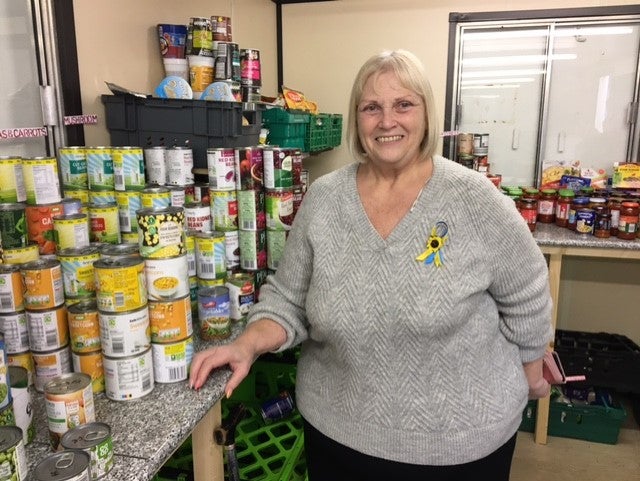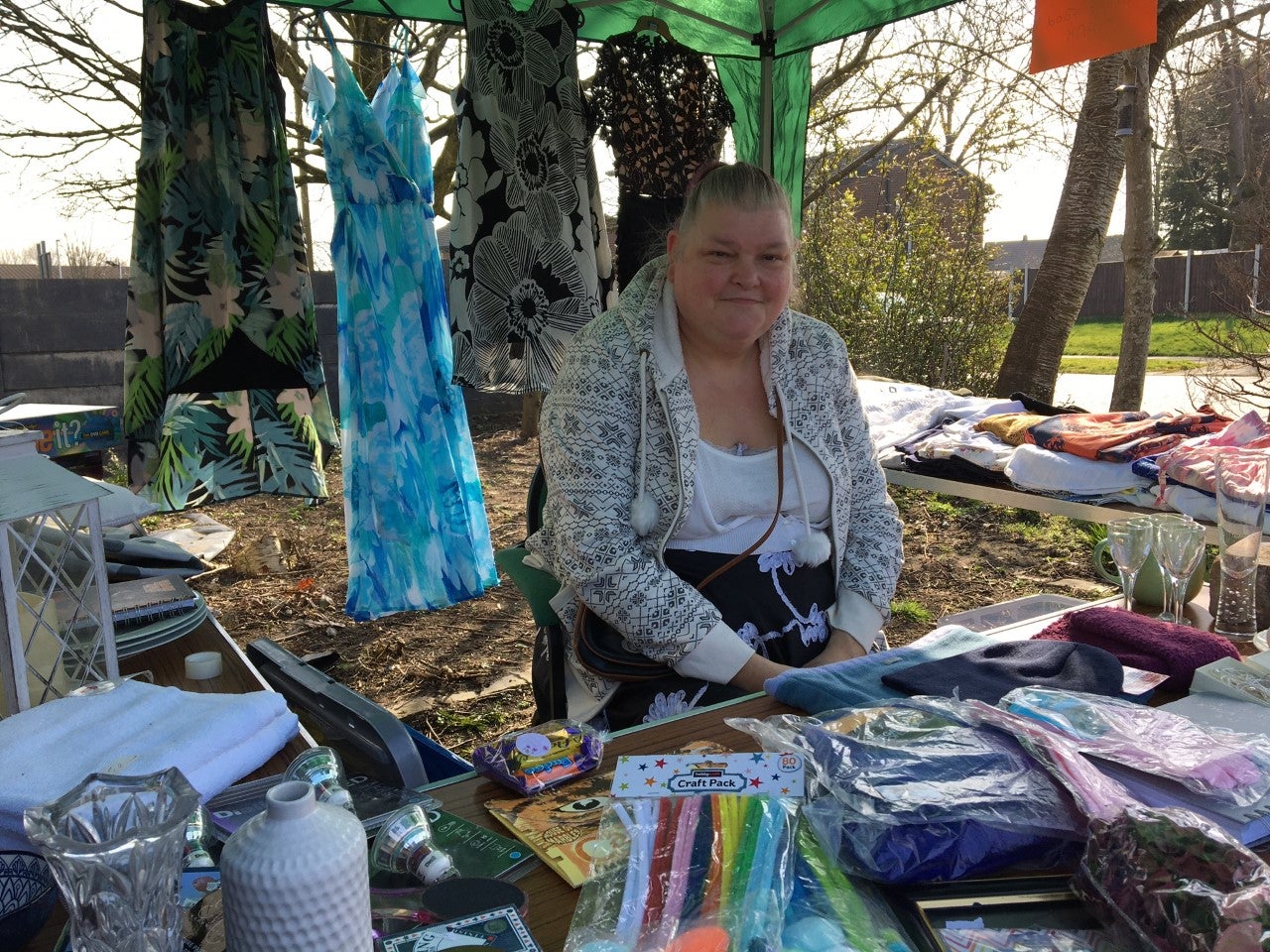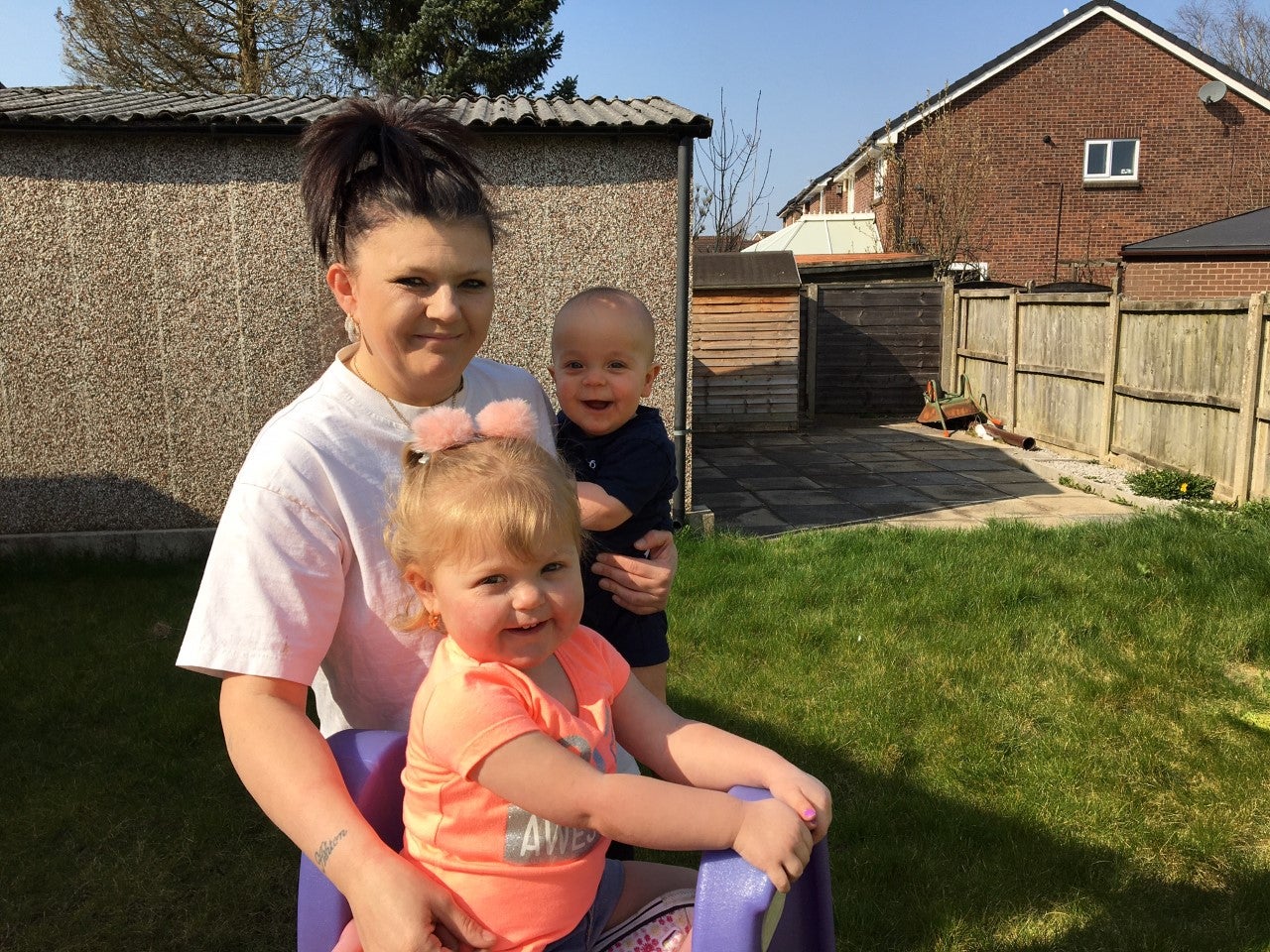
At the Trinity Foodbank in Bury, tales of desperation come thick and heartbreakingly fast.
There’s the family who use old pasta water to flush the toilet to save on bills, and the pensioner so reluctant to use energy he makes a flask of tea in the morning to last through the day.
There’s the mother-of-three who has stopped washing her own clothes to reduce the machine’s load, and the 45-year-old who recently went without electricity for four days after her metre ran out. “We were trying to cook a tin of soup on candles,” she says. “You can’t really cook soup on candles.”
Of late, the volunteers here have noticed a new phenomenon. When users collect a food parcel, some have started asking only for items they can eat cold. “They’re telling us they cannot afford to heat things up,” says Caroline Houlker who helps out. “We are living in a nightmare.”
Britain’s cost of living crisis is set to plunge 1.3 million people into poverty over the next 12 months, according to the Resolution Think Tank. Soaring food prices, fuel costs and energy bills will cause the biggest fall in living standards since records began in 1956.
Yet against this catastrophic backdrop, chancellor Rishi Sunak’s Spring Statement this week has been widely panned for doing almost nothing to help those most in need.
His two headline giveaways – a cut on fuel duty and an increase in the National Insurance threshold – will do little for those suffering the most, analysts reckon. “A modest giveaway" that will “not be enough to protect poorer households,” was the verdict of Paul Johnson, director of the Institute for Fiscal Studies. Tory MP Richard Drax was even blunter: he said we are “tinkering around the edges” of a crisis.
At Trinity Foodbank, one of a dozen such services in Bury, few believe life is set to get anything other than inexorably harder over the coming months.
“We try not to get political here,” says Tina Harrison, the retired nursing home manager who founded the service two years ago.
“But week in, week out we are seeing people in the most dire situations and [Wednesday’s statement] did nothing for them,” comes the reply. “The poorest people were virtually ignored. What good is taking a few pence off fuel when people can’t afford to run their car anymore anyway?”

Trinity itself was set up at Trinity Baptist Church in the Greater Manchester town’s Radcliffe area – home to some of England’s most deprived neighbourhoods – in March 2020 as a response to hardships caused by the pandemic.
In those early months, it was giving away 125 food parcels a week – each one filled with fruit, veg, tins and other staples donated by local people and businesses. But as Covid-19 pressures eased, so did the demand. By late last summer, they were down to less than 50 parcels a week.
“Now, we’re back up to 75,” says Harrison, who lives 10 minutes from the church. “And that’s going up. We’ve had four new households in two hours this morning. And the energy price rise doesn’t even come in until next month.”
How concerned is she about what’s to come? “It plays on my mind constantly,” the 63-year-old says. “Next winter especially. The worry is we’ll get such demand we have to turn people away. And what then?”
A pause as she considers her own question, then asks another. “Where do hungry people go when they can’t even go to a food bank?” she asks.

That fear is compounded by the fact such services across the country are now predicting something of a double hit. On the one hand, they are expecting more users in the coming months. On the other, as the squeeze tightens on more and more people as well as more and more businesses, they are forecasting a reduction in donations.
“I get that he [Mr Sunak] is in a difficult position,” says Harrison, referring to rising prices caused by the pandemic and the Russian invasion of Ukraine. “But we should be looking after people, not just abandoning them to ever higher bills.”
Abandoned is, in fact, exactly how people feel.
Few wish to give their name for fear of being stigmatised, but one wish is repeatedly expressed over the free coffee and toast provided at Trinity every Friday: for a system that does not leave those in need reliant on such services.
“I’m not asking for much,” says Jolene Bates, a 38-year-old single mother-of-three who says she cannot work because her two sons have serious medical conditions. “I’m not asking to live in luxury. I’d just like [my benefits] to actually cover essentials.”
Her biggest heartache, she says, is not being able to do more with her children. “At the weekends, they’ll ask to go to the cinema or something,” she says. “And I’ll have to tell them, no, we’re going to the park again. The swings are free.”

What would users at Trinity Foodbank have liked to have seen the chancellor do on Wednesday? Again, one answer dominates: order the energy giants to give up a portion of their profits – more than £1 billion for the biggest six companies last year – and help those most in need.
Angela Jackson, a full-time mother-of-four, tells of once calling her own energy company after she could not afford to top up the family metre. They told her they’d giver her a £15 credit – but she’d have to pay it back.
“Pay it back?” she remembers today, incredulous. “With what? Buttons?”
Harrison herself, indeed, has had similar conversations with energy companies on behalf of people here. “They don’t budge,” she says. “It always has to be paid back. It’s wrong. It is feeding on people’s misery.”







